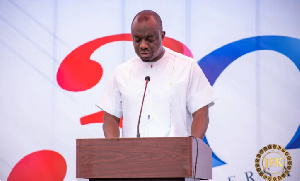- ADDI SELF
- Akomapatrendz
- Alwgh
- Attractive Mustapha NII Okai Inusah
- BigAyehMedia
- Black Hyacinth
- Dangote The Blogger
- Dessert Bloggers
- Dprah
- Ebanbo
- Ella Okunmwendia
- Geniuskojo
- GH Kasa
- Gnews
- Gnewspage
- Gospel News GH
- HypeLords GH
- Kasoa Blogger
- Knews
- Lifeofkiki
- Lizzy1
- Mercyma
- MilanoTheBlogger
- Mira
- Musings of a SHOE
- MyHairDo
- Mystic Wanderer
- Rocky55
- ROSIS
- Showbiz Blogger
- Shyblogafrica
- SirIshmael93
- Talentz MEDIA
- The Big E
- Todays Vibes
- TrenderHQ
- Ugly Game News
- Ummis Vlogs
- Viral Lifestyle
- Xorlali
BigAyehMedia Blog of Thursday, 6 July 2023
Source: bigayehmedia.live
Meta to challenge Twitter with its New social media app Threads

In a bid to expand its reach and compete with the giants of social media, Meta, formerly known as Facebook, has introduced its latest offering called Threads. With an uncanny resemblance to Twitter, Threads aims to provide users with a platform for sharing short, concise messages with their followers. The name itself, Threads, seems to perfectly encapsulate the essence of this concept.
However, the timing of this launch coincides with a series of controversial moves by Elon Musk, the influential entrepreneur and CEO of Tesla and SpaceX. Musk recently announced significant changes to Twitter, a platform renowned for its unrestricted access to real-time information and freedom of expression.
One of the key changes imposed by Musk is the limitation on the number of tweets one can read in a day. This move, intended to combat information overload and encourage more meaningful interactions, has garnered mixed reactions from the Twitter community. While some users appreciate the reduction in excessive content, others argue that it infringes upon their ability to access a diverse range of information.
Moreover, Musk's decision to charge users approximately $90 per year for verification has sparked a heated debate. Being verified on Twitter provides an official blue checkmark, signifying the authenticity of an account. Historically, verification was primarily reserved for public figures, celebrities, and influential personalities. However, the new pay-to-verify model has raised concerns about the accessibility and fairness of the verification process, potentially favoring those with financial means.
Additionally, Musk has removed the SMS option as a secondary authentication method on Twitter. This change has raised security concerns, as SMS verification provided an extra layer of protection against unauthorized access to user accounts. By eliminating this option, Twitter users must rely solely on other authentication methods, such as email or app-based authentication, which may be perceived as less secure by some individuals.
In the midst of these controversies, Meta's Threads emerges as an alternative social media platform, aiming to fill the void created by Twitter's recent changes. Meta's vast user base and extensive resources make it a formidable competitor in the realm of social media. With Threads, Meta hopes to attract users who are dissatisfied with Twitter's evolving policies and seek a new platform that promotes open communication and engagement.
Threads, similar to Twitter, will allow users to share short, concise messages known as "threads" with their followers. It remains to be seen how Meta plans to differentiate Threads from its predecessor and whether it will incorporate innovative features that entice users to switch platforms.
While Meta's introduction of Threads presents an opportunity for users seeking an alternative to Twitter, it also raises questions about the future landscape of social media. Will Threads provide a more open and inclusive environment? How will Meta handle issues such as content moderation, privacy, and the balance between freedom of expression and preventing abuse? These are crucial aspects that will shape the success and adoption of Threads in the social media landscape.
As the competition heats up and the battle for users' attention intensifies, it will be fascinating to observe how Meta's Threads and Twitter evolve and adapt to meet the ever-changing needs and expectations of social media users worldwide.












